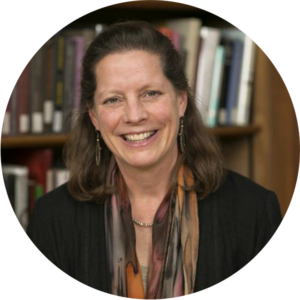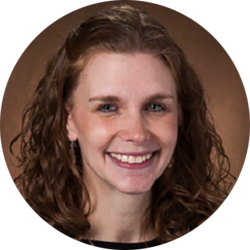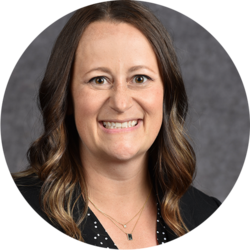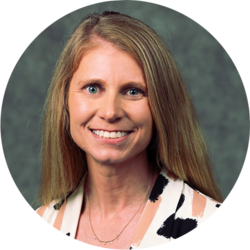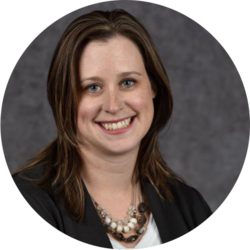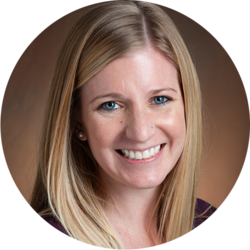Workshop Descriptions
View these breakout sessions for the 2024 conference. There is an awesome slate of breakout sessions on the topic of High-Leverage Practices so get registered today!
Subscribe to our Information Link emails to get updates on this conference and more.
Welcome
Opening Keynote:
Rethinking Accountability: Three Practices for Shared Responsibility in Teaching and Learning
Presenter: Alison Cook-Sather, Ph.D., Bryn Mawr College
9 - 10 A.M. | Ballroom, NDSU Memorial Union
Redefine accountability and learn three practices that enact this new definition, thereby supporting shared responsibility between faculty and students in teaching and learning.
Dr. Alison Cook-Sather, an internationally recognized leader in the fields of student voice and pedagogical partnership, offers a redefinition of accountability that shifts from a focus on threat of punitive consequences to a focus on transformation, healing, and liberation. This shift of both mindset and practice draws on Mia Mingus' notion of accountability. Dr. Cook-Sather offers three practices that enact this new definition of accountability in course structures and practices: assigning Accountability Partners, asking students to complete Access Needs Forms, and inviting students to contribute to a co-created annotated bibliography. She analyzes how these practices support shared responsibility between faculty and students in teaching and learning, and invites participants to consider how they might integrate these approaches into their own teaching practices.
You will:
- Learn about a new way to conceptualize accountability.
- Explore three practices that enact this redefinition of accountability.
- Consider how you might integrate these practices into your own teaching.
Dr. Alison Cook-Sather is the Mary Katharine Woodworth professor of education at Bryn Mawr College and director of the Teaching and Learning Institute at Bryn Mawr and Haverford Colleges. She has developed internationally recognized programs that position students and teachers as pedagogical partners, published over 100 articles and book chapters and nine books, spoken or consulted on pedagogical partnership work in 13 countries, and served as a visiting scholar at a number of institutions, including University of Cambridge in England. Dr. Cook-Sather is founding editor of Teaching and Learning Together in Higher Education, founding co-editor of International Journal for Students as Partners, reviewer for over 45 journals and book publishers, and the recipient of a number of awards, including the Alumni Excellence in Education Award from the Graduate School of Education at Stanford University. Learn more about Alison's work >>
Concurrent Session I Workshops
The Teacher Behind the High-Leverage Practice: Exploring Stages of Teacher Development
Presenter: Jodi Tangen, Ph.D., North Dakota State University
10:10 - 10:40 A.M. | Ballroom, NDSU Memorial Union
Track: Educator Focused
Let's look at the stages of teacher development. More specifically, a synthesized model of teacher development informed from thirteen historic teacher developmental models using the context of higher education teaching experiences and high-leverage teaching practices.
High-leverage teaching practices are foundational to effective education. However, the ways that an educator is able to utilize these practices effectively depends on their own development as teachers. For example, a teacher in the survival stage may aspire to use high-leverage practices, but because teaching is such an overwhelming new endeavor, their use of the practices may be limited. At the mastery stage, it could be argued that teachers utilize these practices in an intuitive - almost arational - manner. Examining the stages of teacher development and the ways that these impact the utilization of high-leverage practices is beneficial in helping educators situate their own developmental trajectory toward teaching expertise.
You will:
- Identify the characteristics of the four stages of teacher development: preservice, survival, stabilization, and mastery.
- Apply the teacher development stages to your own experience as an educator and explore this in the context of high-leverage teaching practices.
Dr. Jodi Tangen has a Ph.D. in counseling and counselor education and ten years of experience teaching in higher education. Additionally, she has four years of teaching experience at the K-12 level. In the past year, she has focused her attention on teacher development and the ways that teachers gain mastery of their craft.
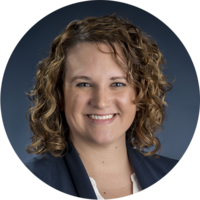
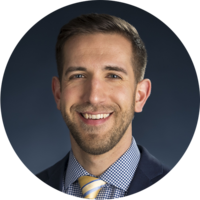
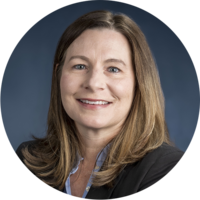
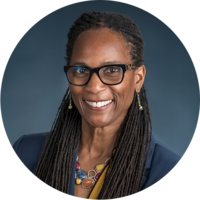
ePortfolios as a High-Impact Practice in Hybrid Doctor of Physical Therapy Education
Presenter: Andrea Mierau, PT, DPT, Ed.D., Augustana University
Evan Andreyo, PT, DPT, Augustana University
Kerry Mallini, PT, MPT, Ed.D., Augustana University
Keiba Shaw, PT, DPT, M.A., Ed.D., Augustana University
10:10 - 10:40 A.M. | Prairie Rose - Remote, NDSU Memorial Union
Track: Specific Practices
ePortfolios, recognized as high-impact practices by the AAC&U, enhance student achievement through reflection and self-regulation. This session explores integrating ePortfolios in an accelerated hybrid Doctor of Physical Therapy learning setting, fostering core values, self-awareness, and goal setting for students' growth. It includes examples, challenges, and plans for curriculum-wide implementation.
ePortfolios are designated as one of the high-impact practices by the American Association of Colleges and Universities (AAC&U). High-impact practices such as service learning, research, community engagement, capstone projects, and ePortfolios can close achievement gaps among students by fostering reflection, growth mindset, and the ability to monitor and self-regulate thought and behavior. Students who participate in high-impact practices have an educational advantage and demonstrate high levels of achievement. ePortfolios have previously been used in physical therapy programs to make reflection an explicit learning experience throughout the curriculum and as a cumulative opportunity to assess personal and professional growth. In this educational session, the description and integration of the ePortfolio in an accelerated hybrid DPT learning setting will be presented. The goals of the ePortfolio include indoctrinating students into physical therapy core values, fostering self-awareness, reflection, and goal setting for personal and professional growth. In addition, the session will present specific ePortfolio assignment examples, successes, challenges, and plans to thread the use of the ePortfolio across the curriculum.
You will:
- Describe the use of the ePortfolio as a high impact practice in DPT education.
- Identify the value of utilizing ePortfolios to improve the understanding of physical therapy core values, foster self-awareness, self-reflection, and goal setting for personal and professional growth.
- Discuss specific potential opportunities that could be integrated into an ePortfolio across the curriculum in DPT education, with a particular focus on hybrid education.
- Evaluate the potential implementation of high impact practices in the learners own educational environment.
Dr. Andrea Mierau earned her Ed.D. in health professions education from A.T. Still University. She also has credentials as a hybrid teaching and learning educator, is a member of the high-impact practice committee at Augustana University, and has been part of the implementation of eportfolios at Augustana University and in the DPT program.
Evan Andreyo is completing his Ph.D. in health sciences at Rocky Mountain University and is recently completed a faculty certification in academic excellence. Andreyo was involved in implementation of the eportfolio in the professional competencies course in the first trimester of the DPT program. He served as the clinic director and SCCE during clinical practice, giving him insight into the value of the eportfolio for outward stakeholder use.
Dr. Kerry Mallini earned a master's degree in physical therapy from the University of Florida and an Ed.D. in educational leadership studies from the University of Kentucky. Her research interests include teaching and learning in physical therapy education, leadership and functional recovery and quality of life issues after neurologic injury. Dr. Mallini is the director of curriculum and was involved in implementation of the eportfolio in the professional competencies course in the first trimester of the DPT program.
Dr. Keiba Shaw earned a M.P.T. degree in physical therapy from Slippery Rock University, an M.A. degree in counseling and an Ed.D. in sport psychology, both from West Virginia University. She completed her transitional DPT degree from A.T. Still University. As the director of student affairs, she introduced eportfolios to incoming students and oversees eportfolio reflective assignments in the capstone course.
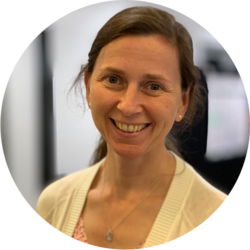

Revising Your Course Syllabus to Help You Create an Equitable and Inclusive Learning Environment
Presenter: Jenni Momsen, Ph.D., North Dakota State University
John Buncher, Ph.D., North Dakota State University
10:10 - 10:40 A.M. | Sahnish, NDSU Memorial Union
Track: Equity
The course syllabus can help establish an inclusive and equitable classroom, learn how. Attendees will take away references and resources and will have time to examine their own syllabi for exclusive practices. Bring your syllabus!
Course syllabi are ubiquitous, required for every course taught at NDSU and most colleges, with many common required elements (e.g.,. contact information, office hours, grade scales, attendance policy, ADA policy, course schedule). This ubiquity often results in the course syllabus being given short shrift in the course design process - we often recycle the syllabus from past years, updating due dates and tweaking content. However, research suggests that the course syllabus can be an instrumental tool in establishing an inclusive, equitable, learner-centered classroom. A course syllabus is critically positioned to articulate course and university policies and practices, which is crucial for students who don't yet know how to navigate higher education. Conversely, the syllabus can result in inequitable practices - we articulate a clear policy about late assignments (no late work accepted), which favors students who know "it never hurts to ask". In this workshop, we will take a magnifying lens to our course syllabi as we reflect on how we can revise the syllabus to be more inclusive of all learners.
You will:
- Reflect on your current syllabus to (a) identify revisions that better reflect their philosophy of learning, teaching, and assessment, and (b) identify elements to add or revise to better promote inclusivity.
- Use a syllabus rubric to analyze your rubric and identify future areas for improvement.
Dr. Jenni Momsen is professor of biological sciences and director of the discipline-based education Ph.D. program. Her research focuses on how to improve student learning in biology with a focus on developing students' systems thinking skills and implementing alternative grading practices in STEM.
Dr. John B. Buncher is associate professor of practice in physics and a member of the discipline-based education Ph.D. program. His research focuses on how concept inventories in STEM function across the intersection of race and gender, and understanding introductory physics students' difficulties with vector math.
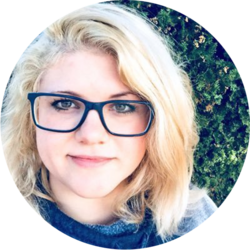
Designing STEM Courses for Impact
Presenter: Amanda Haage, Ph.D., University of North Dakota
10:10 - 10:40 A.M. | Hidatsa, NDSU Memorial Union
Track: Programmatic
Learn what decisions went into designing a large enrollment pre-health profession course sequence with evidence based, high-impact practices, as well as how the iterative process has progressed based on rigorous assessment.
In 2020, the University of North Dakota moved to offering a combined anatomy and physiology (A&P) 200-level sequence from previous stand alone courses. The goal of this move was to modernize and the opportunity arose to design them with a phased introduction to student four year plans. At the same time, the pandemic changed higher education as we know it, so plans for multiple modalities (online asynchronous, self-paced, and traditional in-person) were necessary. While the content for such a sequence is generally standardized by the Human Anatomy and Physiology Society (HAPS) learning outcomes, designing from scratch meant the freedom to deliver that content using a number of evidence-based, high-impact methods in line with each modality. Anyone in education knows deciding on what methods to use can quickly lead to decision fatigue. This session will serve as an in-depth case study that goes through how teaching philosophy, external constraints, and ultimately a strong commitment to student learning guided how these courses were designed and implemented. This will be followed by an extensive look at student data, including the standardized HAPS exam measures and an intercultural inventory tool, demonstrating the success of the chosen methods.
You will:
- Explore a real-world example of course design within modern constraints of higher education.
- Review how STEM courses can function within institutional core curriculum goals around diversity, equity and inclusion.
- Examine student assessment data and how it is used to make iterative decisions in course design.
Dr. Amanda Haage is an assistant professor on the educator scholar track in the department of biomedical sciences at the University of North Dakota School of Medicine and Health Sciences. As an educator scholar she is committed to innovative, evidence-based teaching as well as inclusive practices stemming from a deep belief that science is for everyone. In 2020, she launched UND's new anatomy and physiology course sequence, unique in its certification as "diversity of human experience" courses within UND's essential studies program. She has presented these courses at various conferences including the Human Anatomy and Physiology Society's annual conference and as the keynote speaker for the C2 Summit for Pedagogical Advancements in STEM.
Concurrent Session II Workshops
Going (Almost) Gradeless: How Removing Grades Can Deepen Student Learning Experiences
Presenter: Jeanne Frenzel, Pharm.D., Ph.D., BCSCP, North Dakota State University
Lisa Richter, Pharm.D., BCPS, BCCCP, FASHP , North Dakota State University
Elizabeth Monson, Pharm.D., North Dakota State University
10:50 - 11:20 A.M. | Hidatsa, NDSU Memorial Union
Track: Programmatic
Removing (most) grades from a course can motivate students to adopt a growth mindset, use creative thinking, and take risks in their learning. NDSU School of Pharmacy faculty will describe their experience with using peer and faculty formative feedback along with purposefully minimizing the use of points to assess work and support student learning.
How can going gradeless provide opportunities for students to reflect on their own learning, thus positively engaging them in the learning process? In traditional education models, grades are often a culmination of class attendance and participation, on-time assignment submissions, and adherence to a rubric or pre-determined set of criteria developed by faculty. Including all of these components diminishes the purpose of a final grade as a means to communicate course content mastery. Self, peer, and faculty feedback, and a revise and resubmit approach are non-traditional methods of assessing student learning that focus on student learning and development. Adopting a reflective model of assessment has been found to provide students with a more personalized learning experience, motivate students to independently learn more within a course, and help students to use feedback as a gauge of their performance within a course. Non-traditional assessment can be used to deepen student learning experiences while still exhibiting content mastery and operating within the requirements of accreditation systems and standards.
Three faculty members from the NDSU School of Pharmacy employed alternative assessment methods in their courses to foster learning while reducing stress and anxiety for students. This presentation will outline the alternative assessment strategies and ungraded class structures implemented in each course. Additionally, it will explore the impact on student learning outcomes and perceptions of both students and faculty concerning performance, the grading process, and the concept of ungrading.
- Frenzel J, Kleven S, Cernusca D. Less points, less stress, better learning in a skills laboratory course using alternative grading. American Journal of Pharmaceutical Education (2023): 100620.
- Newton J, Williams M, Feeney D. Implementing non-traditional assessment strategies in teacher preparation: Opportunities and challenges. Journal of Culture and Values in Education; 2020: 3(1), 39-51. doi.org/10.46303/jcve.03.01.3
- Williams H. Will students engage if there are no grades? A Review of the evidence, and an experiment in ungrading, ICERI2020 Proceedings, pp. 2575-2581; 2020.
- Guberman, D. Student perceptions of an online ungraded course teaching and learning inquiry; 2020: 9 (1):86-98. doi.org/10.20343/teachlearninqu.9.1.8.
You will:
- Be equipped with examples of how to go gradeless, use feedback as a powerful teaching and learning tool, and capitalize the use of a learning management system to grade fewer assignments, less often, and more simply, positively impacting both student and faculty.
Presenters have three years of experience implementing alternative assessment strategies in the classroom.
Jeanne Frenzel, Pharm.D., Ph.D., BCSCP is a professor at North Dakota State University's School of Pharmacy, specializing in teaching complex hospital pharmacy practice skills to students. Her research focuses on innovative pedagogies using alternative assessment, simulation, and technology. Dr. Frenzel received a Bachelors of Science in pharmaceutical sciences and microbiology, a Pharm.D. degree, and a Ph.D. in education from North Dakota State University, and has received numerous local and national awards for her contributions to pharmacy education, including multiple teaching honors.
Lisa M. Richter, Pharm.D., BCPS, BCCCP, FASHP is the director of experiential outreach and assessment and an associate professor of practice at North Dakota State University. Her responsibilities include preceptor development, site quality assurance and assessment of experiential education. Dr. Richter previously spent many years as an APPE acute care preceptor and PGY1 Residency Program director. She draws upon those experiences when designing novel preceptor development programs.
Dr. Elizabeth Monson is an assistant professor of pharmacy practice at NDSU and clinical pharmacist at Essentia Health in Fargo. She provides didactic education to pharmacy student in the areas of neurology, nephrology and internal medicine and coordinates the Pharmacotherapy Capstone Course. She utilizes her experience precepting students at Essentia Health to provide up to date active learning in her teaching at NDSU.
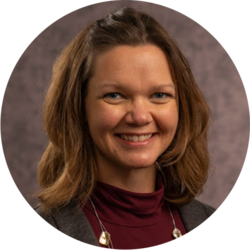
Incorporate the Creation and Teaching of Lessons for K-12 Students into Your College Course
Presenter: Jennifer Gubbels, Ph.D., Augustana University
10:50 - 11:20 A.M. | Ballroom, NDSU Memorial Union
Track: Specific Practices
Learn how to incorporate the high-leverage practice of service learning to schools into upper level science courses (but is applicable across disciplines) in order to increase a student's sense of subject identity, as well as instill a sense of volunteerism and support for teachers and financially disadvantaged and diverse schools. The presenter will describe how to guide students in groups to develop lessons that include active learning strategies for elementary or high-school students on topics relevant to the course.
Service learning is one of the most impactful of high-leverage practices. It requires students to work together in groups and brings to the surface talents and abilities in students that go beyond content knowledge, making it an excellent activity for awareness of the gifts of all in a diversity, equity, and inclusion (DE&I) context. In this session, participants will learn several strategies of how to guide students to develop lessons on a particular course-related topic for either elementary or high-school students. It is most impactful to take students to the most diverse and/or economically struggling schools in the city for this activity.
The presenter will begin with the benefits of the activity in the context of DE&I both for the college and the K-12 students, and then will describe how she has incorporated the activity differently in two of her upper-level courses. A discussion on the importance of reflection on the activity after the activity is included. The session will end with questions, and then participants being guided to brainstorm within a group on how to incorporate a service-learning component in their own course.
You will:
- Understand the benefits in the context of DE&I that occurs when college students work together to become teachers of a topic, as well as the benefits to the diverse K12 students that are learning from them.
- Learn several models by which you can incorporate service-learning into your course, either lab or lecture-based.
- Understand the importance of reflection after the activity, and how to implement it.
- Identify a course in which you can incorporate service-learning, and leave the session with a rough idea of how to embed it into your syllabus.
Dr. Jennifer Gubbels has taught biology at Augustana University since 2009 and has been using and experimenting with active-learning and service learning based strategies since she began. She co-authored a publication titled, "Creating and Teaching Science Lessons in K-12 Schools Increases Undergraduate Students' Science Identity" published in 2018 in the Journal of Microbiology Education. She was honored with the Augustana Student Association Faculty of the Year award in 2018.
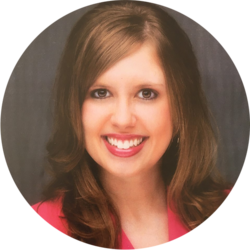
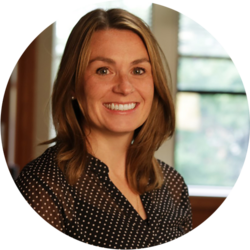
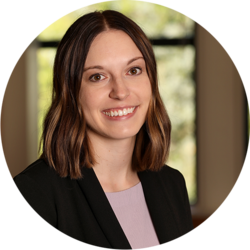
Elevate and Educate: Key Strategies for Effective Teaching and Learning
Presenter: Megan Fixen, D.B.A., Minot State University
Kelly Hendershot, J.D., Minot State University
KateLynn Albers, CPA, MAcc, CMA, Minot State University
10:50 - 11:20 A.M. | Prairie Rose - Remote, NDSU Memorial Union
Track: Educator Focused
Review three high-leverage practices to improve engagement, strengthen classroom relationships, and encourage critical thinking. The presenters will provide strategies to effectively and easily implement high-leverage practices to promote learning in any discipline.
High-leverage practices are designed to improve the ability of students to reach goals and support students in learning academic concepts. Implementing high leverage practices provides a foundation for solid instruction and understanding content. However, preparing and implementing effective practices can be challenging.
This presentation will focus on three high-leverage practices to improve engagement, strengthen classroom relationships, and encourage critical thinking. The presenters will provide strategies to effectively and easily implement high-leverage practices to promote learning in any discipline. The strategies to be discussed in the presentation include:
Strategy 1: Increase student engagement- several active learning strategies will be outlined that will help increase interaction and engagement.
Strategy 2: Strengthen classroom relationships- an outline of a class starter that increases discussion, assesses student understanding, and results in timely feedback on course elements will be presented.
Strategy 3: Encourage critical thinking- an outline of how to effectively use case studies in the classroom will be provided.
You will:
- Understand the importance of using high-leverage practices to effectively reach students and achieve educational goals.
- Identify high-leverage practices that encourage classroom participation.
- Learn specific strategies for implementing high-leverage practices into the classroom.
Dr. Megan Fixen holds a doctoral degree in business administration and is an associate professor at Minot State University. Dr. Fixen has over fifteen years of teaching experience in higher education and has spoken on topics including corporate social responsibility, generational differences, gamification, and technology in the classroom.
Dr. Kelly Hendershot is an assistant professor at Minot State University where she teaches business law and professional ethics courses. Dr. Hendershot earned her Juris Doctorate from the University of North Dakota and previously served as general counsel for a North Dakota municipality.
KateLynn Albers, CPA, CMA is an assistant professor at Minot State University teaching accounting. KateLynn graduated from Minot State University with a Bachelor's degree in accounting and University of North Dakota with a Master's of Accountancy.
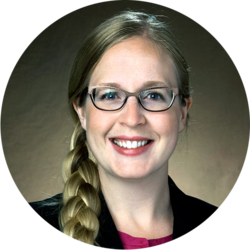
The Illusion of Objectivity: Cognitive Biases, Learning, and Decision-Making in the Classroom
Presenter: Kimberly Booth, Ph.D., North Dakota State University
Marley Lund-Peterson, , North Dakota State University
10:50 - 11:20 A.M. | Sahnish, NDSU Memorial Union
Track: Equity
Reflect on basic cognitive biases that can affect student learning and decision-making, and take away tips from the field of communication on how to overcome these barriers to maximize the impact of high-leverage practices utilized in the classroom.
Instructors in higher education use evidence-based practices to improve student understanding of concepts across many disciplines. A challenge that educators can underestimate when implementing these high-leverage practices is the role of cognitive biases as students learn new concepts. For example, the confirmation cognitive bias provides a hurdle to student learning because humans tend to quickly learn information that aligns with their current perspective, while subconsciously disregarding concepts that do not. This can provide a significant challenge to learning, especially in scientific fields where new concepts can provide alternative viewpoints to the background knowledge that students bring into the classroom. Ultimately, the role of these biases can even influence how students integrate class concepts into their life decisions (e.g., using biology concepts to make vaccination decisions). There are a variety of cognitive biases to consider when teaching across many types of disciplines. In this session, participants will learn about some of the basic cognitive biases that can affect student learning and decision-making, and tips from the field of communication on how to overcome these barriers. With this knowledge, educators will be able to maximize the impact of high-leverage practices utilized in the classroom.
You will:
- Identify the basic cognitive biases that can affect student learning and decision-making, and apply strategies from the field of communication to address the biases.
Dr. Kimberly Booth is an associate professor of practice in the Department of Biological Sciences as North Dakota State University. Her primary focus is teaching undergraduate general education biology courses, where addressing cognitive biases that affect student learning and making decisions about socio-scientific issues are especially important. Dr. Booth has spent the last academic year on developmental leave investigating cognitive biases that affect student learning and decision making, and learning science communication tools to help overcome these barriers.
Marley Lund-Peterson is a third-year, dual doctorate student in microbiology and discipline-based education research at North Dakota State University. Her primary focus is researching and applying evidence-based science communication efforts within the science community. Lund-Peterson spent the first two years of her doctorate on science-based decision-making and how bias, belief systems, and community impact students' decision to vaccinate against COVID-19 and influenza.
Concurrent Session III Workshops
Metacognitive Reflection: What Is It and How Can We Foster It In Our Classrooms?
Presenter: Katie Wissman, Ph.D., North Dakota State University
Jenni Momsen, Ph.D., North Dakota State University
11:30 A.M. - 12 P.M. | Ballroom, NDSU Memorial Union
Track: Specific Practices
Discusses metacognitive reflection and explores ways to incorporate the technique into teaching practices and classroom assessments.
As educators, a critical part of our job is to help our students learn. One way to support student learning is to foster the development of students' self-regulatory abilities and behaviors by having them engage in metacognition reflection. Drs. Wissman and Momsen have integrated metacognitive reflection into their classroom practices for large, undergraduate courses (135-300 students) and small, graduate courses (10-20 students). We will discuss how to facilitate students' planning, monitoring, and evaluating of their own learning by offering practical examples for ways in which faculty can implement metacognitive reflection into any course they teach.
You will:
- Learn about metacognitive reflection.
- Learn about various learning strategies and assessment practices that incorporate metacognitive reflection.
- Come away with practical uses of metacognitive reflection that can be adapted for use in the courses you teach.
Dr. Katie Wissman is an assistant professor in the Psychology Department and faculty member of the discipline-based education research Ph.D. program at NDSU. Her research focuses on how to support student success and inform pedagogical instruction by examining best learning practices for inside and outside of the classroom.
Dr. Jenni Momsen is professor of biological sciences and director of the discipline-based education Ph.D. program. Her research focuses on how to improve student learning in biology with a focus on developing students' systems thinking skills and implementing alternative grading practices in STEM.
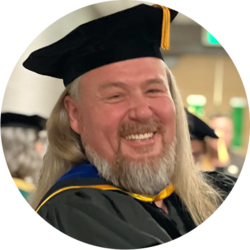
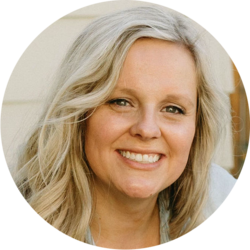
The Learning Assistants Program: Facilitating Active Learning in Large Lecture Classrooms
Presenter: Warren Christensen, Ph.D., North Dakota State University
Tara Slominski, Ph.D.
11:30 A.M. - 12 P.M. | Hidatsa, NDSU Memorial Union
Track: Programmatic
Come learn about the Learning Assistants Program which is designed to bring upper-division undergraduate students into the classroom to serve as facilitators of learning, allowing the use of interactive teaching strategies with classes of 100+ students.
Large lecture classes have been present in large universities for decades, and, unfortunately, they often lack significant and substantive engagement between instructors and students. Such classrooms often feature the "sage on the stage," where instruction is given by a single instructor and students are intended to listen, take notes, and, at a later time, answer questions on an exam to earn credit for the course. This is common across universities, despite overwhelming evidence that engaging students with higher-order tasks and activities that allow students to get hands-on and minds-on in the classroom. Learning Assistants (LAs) are upper-division undergraduates who are paid to be in the classroom and do some work outside of the classroom to support student learning. Their presence in the classroom opens up a realm of possibilities for instructors, as they now have the instructional support to engage students more deeply. When LAs are used appropriately, they have been documented to increase students' success by effectively lowering DWF rates and increasing students' sense of belonging. Furthermore, those students serving as LAs gain mastery-level understanding of the content for their course, preparing them for future success in their subsequent courses and post-graduate opportunities.
You will:
- Understand the major tenets of the Learning Assistants Program.
- Acquire multiple strategies for using Learning Assistants in a large lecture classroom.
- Learn procedures and stages for applying for and recruiting Learning Assistants.
Dr. Warren Christensen is the current program coordinator for the Learning Assistants Program, and helped create the program at NDSU in 2012. He's been involved with disseminating the program on a National level from 2014-2017.
Dr. Tara Slominski is the current teacher of STEM 303: Science of Learning, a 1-credit course that all Learning Assistants are required to take. She has an extensive background in education research at the university-level and research-based pedagogy.
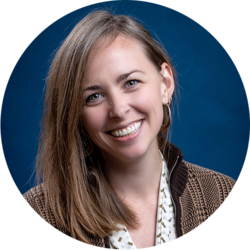
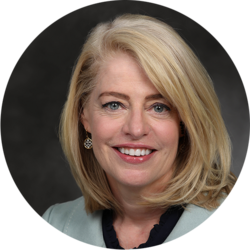
Using AI to Generate Course Materials in Support of High-Leverage Practices
Presenter: Anna Kinney, M.A., University of North Dakota
Anne Kelsch, Ph.D., University of North Dakota
11:30 A.M. - 12 P.M. | Prairie Rose - Remote, NDSU Memorial Union
Track: Educator Focused
Learn ways teachers can use generative Artificial Intelligence (AI) tools in developing effective course materials to implement high-leverage practices and enhance student learning and engagement.
There has been a lot of conversation around student use of generative AI, but instructors are also using these tools to enhance student learning and engagement. In this session we will explore how generative AI can assist educators in developing effective course materials and implementing high-leverage practices. A critical part of our discussion will be examining AI bias and ethical considerations, with the goal being to foster a learning environment where generative AI enhances teaching practices responsibly and ethically. Over the last year, we have offered multiple faculty development workshops on AI to support educators at the University of North Dakota, including several on using AI effectively and ethically to promote student engagement. We will share these strategies for using AI to create teaching materials in support of different learning outcomes and for different purposes, as well as share examples, insights, and practical approaches from faculty members who have integrated generative AI effectively into their classrooms.
You will:
- Gain a better understanding of how to use generative AI to develop teaching materials.
- Examine AI bias and the ethical concerns of using generative AI.
- Learn how other faculty have used these tools in support of high-leverage practices in their classrooms.
- Gain strategies for using generative AI effectively to support high-leverage practices in the classroom.
Anna Kinney has served as the coordinator of the University Writing Program at the University of North Dakota since 2017. Her work focuses on inclusive writing pedagogy and supporting faculty across the curriculum in fostering excellence in writing.
Dr. Anne Kelsch has served as director of faculty development at the University of North Dakota since 2007. Her research focuses on new faculty and STEM faculty development. She is the 2022 recipient of UND's Martin Luther King Jr. Social Justice Award.
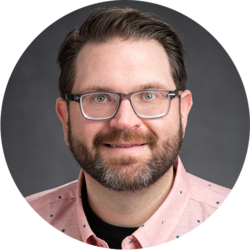
Restorative Practices In The Higher Education Setting
Presenter: Matt Diischer, M.Ed., North Dakota State University
11:30 A.M. - 12 P.M. | Sahnish, NDSU Memorial Union
Track: Equity
An overview of restorative practices and how they can be used as part of holistic education and development for individuals and the community, including the ability to participate in a short talking circle exercise. Members of the NDSU Restorative Practices Network will answer your questions.
The area of restorative practices is one that is both newer to many professionals, and also rooted in the history and culture of indigenous communities. Restorative practices serve as an alternative way of thinking about how to build community, strengthen relationships, manage conflict, address harm caused, and ultimately learn about ourselves and others. These practices have been recognized through research and application to be widely applicable to different spaces where people learn and interact. While the modern movement began in the 1970s in spaces like the Minnesota Restitution Center and other diversion programs, many K-12 districts (including Fargo Public Schools) have dedicated restorative practice programs and staff to implement an intentional/curricular approach to proactive and responsive restorative interventions. Over the last 3-4 years, NDSU has begun to implement restorative practices, and looks to continue to find opportunities to use them to enhance the campus community and individuals within. Our goals with the session are to share the basics of restorative practices, discuss where we currently use them, and what opportunities we see for enhanced use of these practices and collaboration with other potential educational partners.
You will:
- List two or more restorative practices used in educational settings.
- Recall modern and indigenous history of use of restorative practices.
- Select an appropriate restorative practice intervention for a hypothetic situation you may face in the classroom.
- Experiment with participation in a talking circle.
Matt Diischer is the assistant dean of students at NDSU. Diischer has been an educator for 20 years in both the K-12 public school system (2005-2013) and in higher education student affairs settings. Previously, Diischer has worked in Residence Life at NDSU (2004-2005), SDSU (2013-2018), and NDSCS (2018-2022). Diischer earned his Bachelor's of Music Education in 2004 and his Master's in Education (Student Affairs) in 2016 from SDSU.
Lunch & Award Presentation
Presenter: Dr. Stacy Duffield
12 P.M. | Ballroom, NDSU Memorial Union
Be there to hear who is the recipient of the 2024 Inspiring Colleague Award.
Closing Keynote:
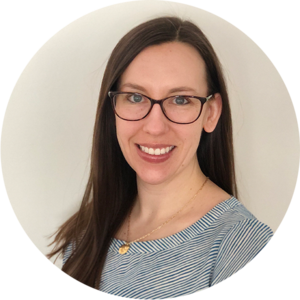
Leveraging Spacing and Retrieval Practice to Improve Student Learning
Presenter: Megan Sumeracki, Ph.D., Rhode Island College
12:30 - 1:30 P.M. | Ballroom, NDSU Memorial Union
Leveraging decades of cognitive research Dr. Megan Sumeracki describes two evidence-based learning strategies, spacing and retrieval practice. For each strategy, she provides an overview, evidence supporting their effectiveness, and applications for a variety of instructional settings.
Decades of cognitive research can inform classroom learning. However, the research is not always translated into practice, leading to missed opportunities to leverage high-impact learning strategies. Dr. Megan Sumeracki describes two strategies that have robust evidence to support their use during learning, spacing and retrieval practice. She provides a brief overview of the strategies, evidence to support their effectiveness, and applications of the strategies that can be used in a variety of instructional settings. Other evidence-based cognitive strategies that can be used along with spacing and retrieval are also discussed. Finally, Sumeracki offers resources available on learningscientists.org to aid in further application.
You will:
- Describe how cognitive psychologists develop and evaluate learning and teaching strategies.
- Describe the two key strategies discussed of spacing and retrieval practice.
- Discuss a plan for application of the strategies in your own instruction.
- Explain how learners can use the strategies independently to guide learning.
Dr. Megan Sumeracki (formerly Smith) earned her Ph.D. in cognitive psychology from Purdue University and is now an associate professor at Rhode Island College. Sumeracki's research focuses on the ways established learning strategies from cognitive psychology can be leveraged to improve meaningful learning, and the best ways to promote evidence-based strategy use among students and educators. Sumeracki has delivered talks and workshops both in the U.S. and abroad at scientific conferences and with educators in primary and secondary schools, institutions of higher education, medical schools and teaching hospitals, and the U.S. State Department, and co-founded The Learning Scientists.



